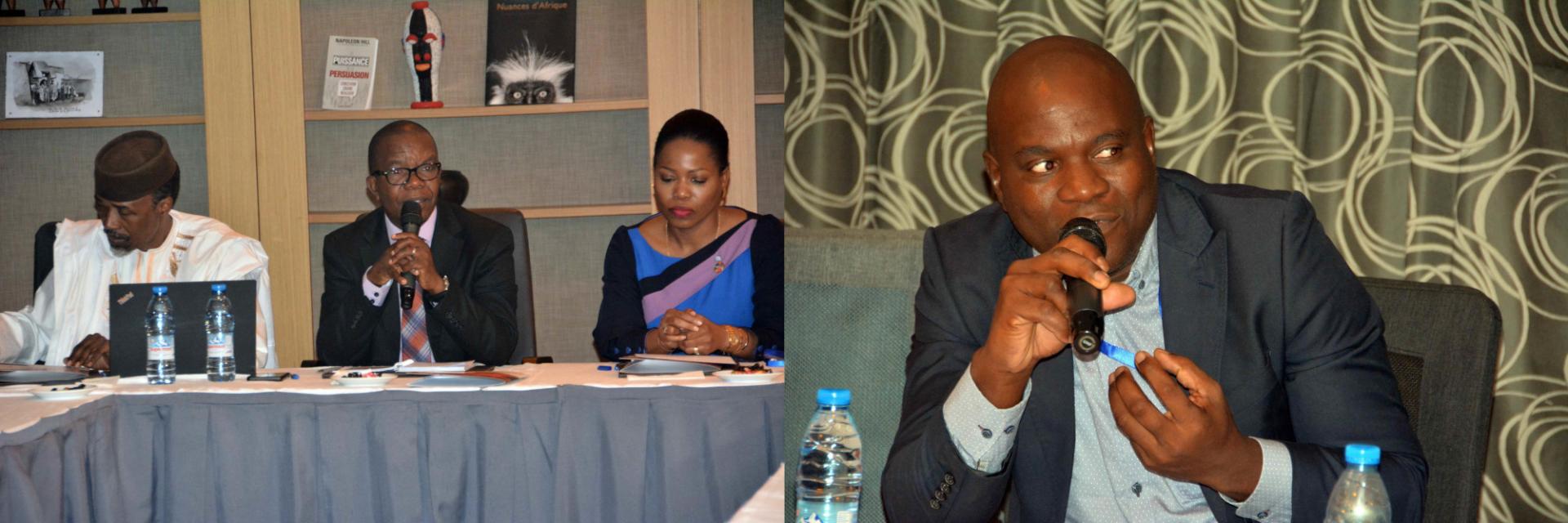Douala, 19 July 2024 (ECA) – in sidelines of the AfCFTA’s week in Central Africa, which took place from July 15 to 19 in Cameroon's economic capital, the Economic Commission for Africa (ECA) met the sub-region's economic press.
The main presentation focused on the report Assessing Regional Integration in Africa 11 (ARIA XI), whose theme is “Delivering on the African Economic Community: Towards a Continental Customs Union and Common Market”. For Francis Ikome, Head of the Regional Integration Section, Regional Integration and Trade Division (RITD) at the ECA, “ARIA XI presents a real opportunity. Regional integration must translate into market opportunities and tangible benefits for the people of Africa”.
Professionals from the sub-region's economic press point out that the publication has not been sufficiently publicized: “At this stage, the African Continental Free Trade Area (AfCFTA) is not sufficiently well known. The customs union and common market are higher steps. There is a need to strengthen the synergy between ECA experts and the press in order to increase information on these projects,” says Marcel Tsoungui, editor-in-chief of vision 4 Centrafrique (CAR). In Cameroon, awareness of the AfCFTA is certainly evolving, but there is a need to reach different targets. According to Marie Laurence NKEE, head of the Central Africa service at CRTV, “not only do we need to publicize the existence of the ECA's ARIA publication as a source of information since 2004, but we also urgently need to make its recommendations known to decision-makers on the one hand, and SMEs on the other”.
ECA was delighted by the discussions. The ARIA XI report has made pragmatic approach as a cardinal principle. As Francis Ikome put it, “ARIA XI, like a number of previous editions, has the potential to shape Africa's integration journey for the next two decades and beyond, demonstrably improving the lives of African citizens. To achieve this, the report advocates pragmatism”.
It remains to be seen whether the recommendations of ARIA XI and previous publications can be translated into concrete, visible development projects. Frederic Nonos of the pan-African agency Ecofin and the private sector media Investir au Cameroun invited ECA to work closer with the press to demonstrate the scope of ARIA XI: “AfCFTA and the Customs Union are trade instruments. Trade integration in Central Africa is the weakest on the continent, despite 4 editions of ARIA on AfCFTA and 2 others on trade”.
Jean Luc Mastaki, Director of the sub-regional office, responded to this concern by highlighting the work of ECA in Central Africa: “Regional integration in Central Africa will be dynamic when industry will drive trade. We have validated a master plan for industrialization and economic diversification in Central Africa (PDIDE AC), and to transform the trade ecosystem we have also finalized the sub-region's AfCFTA strategy. This is the culmination of all ECA's research work. The entire organization is committed to the development of regional value chains, and in the sub-region we are supporting DRC in the battery industry, Cameroon in wood products, and Chad in the beef and leather industry”.
According to Adama Coulibaly, head of the sub-regional initiatives section, “special economic zones are the ideal tools for accelerating manufacturing in the sub-region. Central Africa must win the battle for quantity and quality in the AfCFTA”. This will be achieved “with the contribution of everyone: SMEs, women, young people and people with disabilities” added Sandrine Aida Koissy-Kpein, economist affair officer at the office.
Issued by:
Communications Section
Economic Commission for Africa
PO Box 3001
Addis Ababa
Ethiopia
Tel: +251 11 551 5826
E-mail: eca-info@un.org

